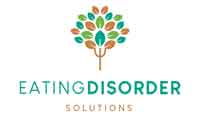Generalized Anxiety Disorder Treatment
 Every year, over 3.1 percent of American adults and children suffer from generalized anxiety disorder, which usually manifests in the form of excessive and often irrational worry about seemingly mundane topics. Those who suffer from GAD may experience a sense of dread and non-stop fretting when thinking about work, school, money, health and personal relationships. Sufferers of GAD, a disorder that can gradually set on any time between childhood and middle age, often struggle to curb their anxiety even if they are aware that their worry about a particular topic is irrational. In addition, GAD frequently co-occurs with other disorders, such as depression and phobias. Those who suffer from GAD, may find themselves over-planning when faced with uncertainty or avoiding situations that bring up feelings of uncertainty. For some, GAD can become so severe that it not only interferes with daily tasks but can even manifest in the form of physical symptoms.
Every year, over 3.1 percent of American adults and children suffer from generalized anxiety disorder, which usually manifests in the form of excessive and often irrational worry about seemingly mundane topics. Those who suffer from GAD may experience a sense of dread and non-stop fretting when thinking about work, school, money, health and personal relationships. Sufferers of GAD, a disorder that can gradually set on any time between childhood and middle age, often struggle to curb their anxiety even if they are aware that their worry about a particular topic is irrational. In addition, GAD frequently co-occurs with other disorders, such as depression and phobias. Those who suffer from GAD, may find themselves over-planning when faced with uncertainty or avoiding situations that bring up feelings of uncertainty. For some, GAD can become so severe that it not only interferes with daily tasks but can even manifest in the form of physical symptoms.
What Are the Symptoms of Anxiety?
The symptoms of anxiety, which manifest both mentally and physically, can hinder the ability of an individual to preform daily tasks. An individual is diagnosed with GAD if they experience three or more of these symptoms and have more anxiety filled days than not during a six-month time span. Some of the symptoms of GAD can include:
- Difficulty concentrating
- Restlessness
- Irritability or edginess
- Headaches
- Sweating
- Nausea and upset stomach
- Tiredness
- Trouble sleeping
- Numbness in hands and feet
- Being easily startled
- Rapid heart beat
- Breathing difficulty
- Muscle tension and aches
Who Suffers from Generalized Anxiety Disorder and Why?
Although the exact origin and cause of GAD is unknown, it is thought to be the result of a combination of factors including genetics, behavior, gender, life experience and environment. Individuals with family history of anxiety are more likely to develop GAD themselves. Women are two times more likely to develop GAD due to more exposure to life and environmental stressors such as poverty, discrimination, oppression and sexual or physical abuse. Behavioral choices made by individuals such as substance abuse can also increase their risk of developing GAD. Even the abuse of seemingly mild substances such as nicotine and caffeine can kick off symptoms of GAD.
GAD Treatment: Help is Available
If you or someone you know has experienced three or more symptoms of GAD over the duration of six months, it is time to seek help. If left untreated, GAD can become a chronic condition and increase one’s chances of developing co-occurring disorders, such as substance abuse or depression. There are a number of GAD treatment options available, most of which are used in conjunction to effectively treat anxiety. Which treatment in beast of you will depend on the severity of your GAD. These treatment options include:
Cognitive Behavioral Therapy:
In this form of therapy, an individual works with a therapist to understand their specific anxiety triggers and learn techniques to diffuse anxiety in triggering situations. During sessions with a therapist, individuals learn how to deal with uncertainty and curb characteristic GAD behaviors such as over-planning and avoidance. Another component of Cognitive Behavioral Therapy (CBT) helps individuals overcome their fears by slowing exposing them to their triggers and working with the therapist to change the manner in which those stressful situations are perceived by the individual. For many individuals, CBT alone can produce effective long-term solutions in dealing with GAD. In some cases, medication may be deemed necessary to supplement CBT.
Medication:
For individuals with severe physical symptoms or cases in which GAD symptoms significantly hinder an individual's ability to function normally on a day-to-day basis, medications may help. Anti-anxiety medications, such as Xanax, may be prescribed on a short-term treatment as these medications are not suitable for long term use and may lead to abuse. Antidepressants, such as Prozac, are more suited for long term treatment but as with any medication, there are side-effects. In some cases, Benzodiazepines, which are mild sedatives or tranquilizers, may be prescribed. Beta-blockers are another class of medications that maybe used on a short-term basis to deal with severe GAD symptoms. Which medication will be the most beneficial will depend on the individuals particular case and the discretion of the prescribing doctor.
Lifestyle Changes:
Although effective treatment of GAD requires CBT and in some cases medication, adopting certain lifestyle changes can prove beneficial in the management of anxiety and other GAD symptoms. Eliminating the use of substance that can be sources of GAD triggers including alcohol, caffeine and nicotine can be helpful. A healthy diet and daily activities such as walking and exercising as well as meditation or yoga can have a positive impact on the overall wellbeing of an individual.
Inpatient Treatment for Anxiety
Since GAD can be a debilitating disorder and often co-occurs with other mental illnesses or mood disorders, an inpatient program may be a good choice for many individuals seeking treatment. At an inpatient program, individuals can focus solely on their recovery in a safe environment where they also have round the clock access to medical and therapy staff. At inpatient centers, patients can benefit from one-on-one therapy sessions and group therapy sessions. Many inpatient treatment centers also offer more holistic treatments, such as exercise, meditation, art classes and yoga, to supplement therapy and medication.
Outpatient Treatment for Anxiety
For individuals who cannot afford to take time of work or have family responsibilities they must tend to daily, outpatient treatment is an option. Outpatient programs are also beneficial for individuals who have completed an inpatient program and want to continue their treatment but no longer need a structured or controlled environment for their ongoing treatment.
Dual Diagnosis and GAD
In cases where an individual is suffering from a mental disorder, such as GAD, as well as substance abuse, a dual diagnosis may be given. As part of dual diagnosis, a patient is accessed by a mental health professional and/or an addiction specialist so that each co-occurring illness can be diagnosed and treated simultaneously to ensure the best outcome for patients. Many patients who suffer from GAD and have a substance abuse problem may not know they have GAD because drugs or alcohol mask the symptoms of GAD or make it difficult to recognize.
Dangers of Untreated GAD?
As with any medical condition, it is important to seek proper treatment. If left untreated, GAD can exacerbate one’s condition or lead to the development of other co-occurring disorders. Some of the dangers of untreated GAD include:
- Depression
- Obsessive Compulsive Disorder
- Substance abuse
- Inability to preform simple tasks efficiently
- Social phobias such as agoraphobia
- Headaches
- Teeth grinding
- Gastrointestinal issues
- Abnormal heart rhythms
- Sleep disorders such as insomnia
How to Help a Loved One with GAD
Living with GAD can be debilitating and at times isolating. If someone you know is suffering from GAD or showing symptoms of GAD, help them by providing a safe and supportive environment in which they can share and communicate without fear of judgement. Although seeking prompt medical attention is necessary to avoid the risk of developing other co-occurring disorders, which is common among sufferers of GAD, it is important not to force an individual out of their comfort zone. Help is available and with a combination of therapy, medication and lifestyle changes, many people can sucessfully overcome GAD.










